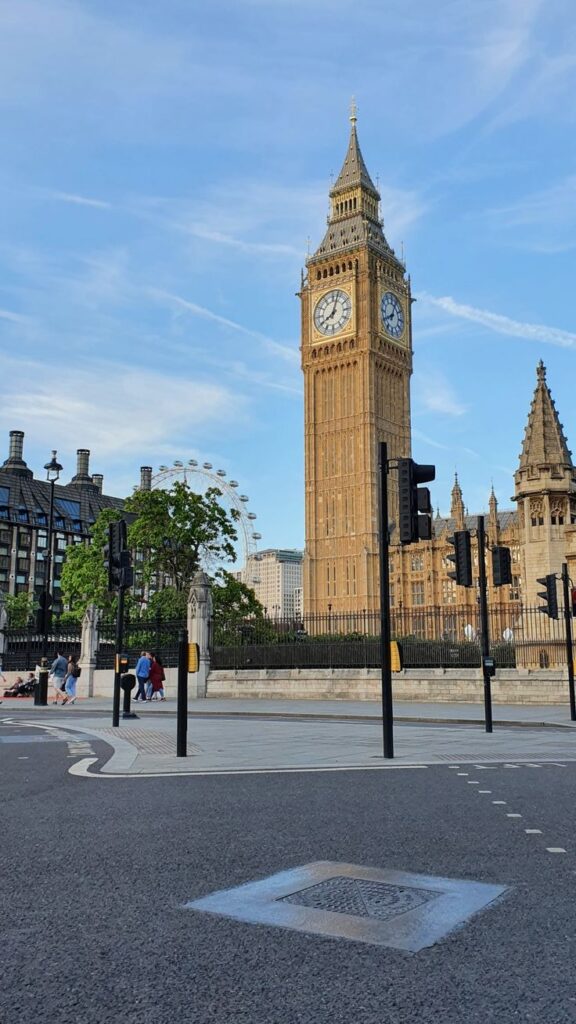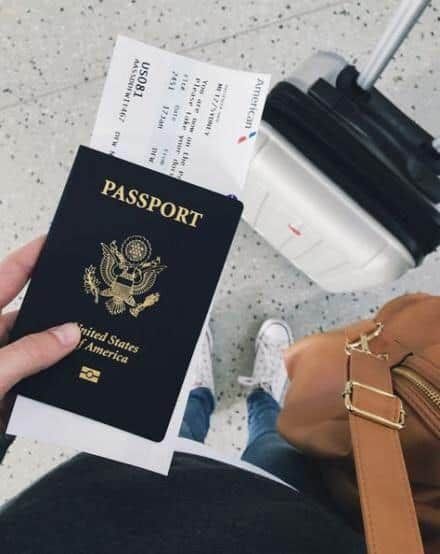Why Study in the UK?

Top 5 Countries for International Students in 2025

Top 5 Countries for International Students in 2025 Top 5 Countries for International Students in 2025 Studying abroad continues to be a transformative experience for students worldwide. With diverse academic programs, rich cultural experiences, and promising career opportunities, certain countries stand out as top destinations for international students. Here are the top five countries for international students in 2025, based on education quality, affordability, and post-graduation opportunities. 1. Canada Canada remains a favorite for international students due to its high-quality education system and welcoming environment. Why Choose Canada? World-Class Institutions: Universities like the University of Toronto, McGill University, and the University of British Columbia are globally recognized. Work Opportunities: Students can work up to 20 hours per week during semesters and full-time during breaks. Post-Graduation Pathways: The Post-Graduation Work Permit (PGWP) allows students to gain work experience and transition to permanent residency. Cultural Diversity: Canada is known for its inclusive and multicultural society, making it easy for international students to adapt. 2. United States The United States remains a top destination for students seeking diverse academic programs and cutting-edge research opportunities. Why Choose the USA? Diverse Programs: With over 4,000 universities, students can choose from a wide range of programs tailored to their interests. Research Opportunities: Universities like MIT, Stanford, and Harvard offer unparalleled resources for innovation and research. Global Networking: The U.S. attracts students from around the world, providing valuable networking opportunities. Scholarships: Many universities offer scholarships and financial aid to international students. 3. United Kingdom The UK continues to attract students with its prestigious universities and shorter degree programs. Why Choose the UK? Reputation for Excellence: Institutions like Oxford, Cambridge, and Imperial College London are globally ranked. Shorter Degrees: Undergraduate programs typically last three years, and master’s programs are often just one year. Graduate Visa: The UK’s Graduate Route allows students to stay and work for up to two years after completing their studies. Rich History and Culture: The UK offers a unique blend of academic rigor and cultural heritage. 4. Australia Known for its high standard of living and excellent education system, Australia is a top choice for international students. Why Choose Australia? Top Universities: Institutions like the University of Melbourne, Australian National University, and the University of Sydney are highly ranked. Focus on Practical Learning: Many programs emphasize real-world applications and internships. Post-Study Work Rights: Australia’s Temporary Graduate Visa allows students to gain work experience after graduation. Student-Friendly Cities: Cities like Melbourne and Sydney are frequently ranked among the best student cities worldwide. 5. Germany Germany is an excellent choice for students seeking affordable, high-quality education in Europe. Why Choose Germany? Low Tuition Costs: Many public universities charge little to no tuition fees, even for international students. Strong Engineering and Tech Programs: Germany is renowned for its STEM programs, especially in engineering and technology. Work Opportunities: Students can work part-time during their studies and benefit from strong industry connections. Cultural and Historical Richness: Germany’s rich history and vibrant cities provide a well-rounded experience. Final Thoughts Choosing the right study abroad destination depends on your goals, interests, budget and career aspirations. These five countries have proven their commitment to fostering international students’ success through exceptional education, welcoming communities, and abundant opportunities. No matter which destination you choose, the journey promises to be rewarding and life-changing.
First-Time Traveler’s Guide: Essential Tips I Wish I Knew Earlier

First-Time Traveler’s Guide: Essential Tips I Wish I Knew Earlier My first international trip was a mix of excitement and costly mistakes. Standing at the airport with an overweight suitcase, missing documents, and no local currency, I learned travel lessons the hard way. I’ve since explored dozens of countries and discovered that successful travel comes down to knowing the right things before you start. Therefore, I’ve compiled this comprehensive guide covering everything from pre-trip planning to accommodation choices. These are the essential tips I wish someone had shared with me before my first adventure abroad. Whether you’re planning to study abroad or embarking on your first international journey, this guide will help you avoid common pitfalls and travel with confidence. Essential Pre-Trip Planning Steps Initially, I learned that successful international travel starts with proper documentation. The most crucial document is your passport, which must be valid for at least six months beyond your planned stay in most countries. Furthermore, many nations require specific entry documents like visas and proof of vaccinations. Here are the essential documents I always prepare: Passport copies (both digital and physical) Visa documentation (if required) International driving permit Travel insurance papers Vaccination certificates Consent forms (when traveling with minors) Notably, I’ve discovered that travel insurance isn’t just an option – it’s a necessity. Medical evacuations can cost up to NGN 168,820,452.39, and most U.S. insurance plans don’t provide coverage overseas. Consequently, I always purchase comprehensive travel insurance that covers medical emergencies and trip cancelations. Health preparation is equally important. For instance, many countries now require specific vaccinations. The CDC recommends getting fully vaccinated against measles before traveling to any international destination. Additionally, some prescription medications that are legal in your home country might be prohibited elsewhere, so I always check with the embassy of my destination about medication regulations. When it comes to budgeting, I start planning as soon as I book my trip. I’ve found that setting aside money for pre-trip expenses like passport renewals (starting at NGN 219,466.59) and visa fees (beginning at NGN 50,646.14) helps avoid last-minute financial stress. I also research local transportation costs and accommodation rates to create a realistic daily budget. Smart Packing Strategies After years of overpacking, I’ve mastered the art of traveling light without sacrificing essentials. Above all, I’ve learned that smart organization is key to efficient packing. I always start with packing cubes to keep my belongings organized and compressed. Moreover, I follow a simple rule: pack for one week, regardless of trip length. This typically means selecting versatile pieces that can create multiple outfits: one hat, two pairs of shoes, three bottoms, four tops, five pairs of socks, and six pairs of underwear. When it comes to electronics, I’ve discovered that protection is paramount. Specifically, I use a hard-shell case for my devices and keep all cables neatly organized in a dedicated pouch. Here’s what I always pack in my carry-on: Portable power bank for emergency charging Universal adapter with surge protection Backup charging cables Electronics in easily accessible compartments Notably, I’ve learned to be cautious with voltage requirements when traveling internationally. Most modern devices support dual voltage (100-220V), but I always check the label near the power supply before plugging in. In fact, many countries use voltage twice that of the U.S., which can damage unprepared devices. In addition to smart packing, I’ve found that doing laundry during trips is far more practical than overpacking. I pack quick-drying fabrics and a small amount of biodegradable soap. This strategy has helped me transition from a heavy checked bag to a single carry-on, making my travels significantly more enjoyable. Transportation and Accommodation Tips Through my extensive travels, I’ve discovered that getting around efficiently and finding the right place to stay can make or break a trip. Particularly in unfamiliar cities, I rely heavily on public transportation, which typically offers the most cost-effective way to explore. When using public transit, I always research routes and schedules beforehand. Notably, I’ve found that downloading transit apps like Google Maps or Citymapper helps navigate unfamiliar systems seamlessly. For safety, I keep my valuables secure and stay alert, particularly during peak hours. If I’m using rideshare services, I follow essential precautions: Wait indoors until the driver arrives Verify the license plate and driver details Share trip details with trusted contacts Sit in the back seat Alternatively, when choosing accommodation, I consider these key factors: Location relative to attractions and public transport Safety of the neighborhood Available amenities Budget constraints Generally, I book accommodations 3-7 months ahead for domestic trips and 4-10 months in advance for international travels. Through experience, I’ve learned that booking early morning flights increases the chances of on-time departures and reduces the risk of delays. For longer stays, I typically opt for vacation rentals or Airbnbs that offer kitchen facilities. These options often provide better value, particularly when staying for extended periods. However, for shorter visits or when traveling solo, I prefer hotels near public transportation hubs. Conclusion Travel mistakes taught me valuable lessons that transformed me from an anxious first-timer into a confident explorer. Though my initial journey started with documentation troubles and overpacked bags, these experiences helped shape my approach to international travel. Smart preparation makes all the difference between a stressful trip and an enjoyable adventure. Securing proper documentation, packing efficiently, and making informed transportation choices will save both money and headaches. Additionally, choosing the right accommodation based on location and budget creates a solid foundation for any journey. Remember that successful travel doesn’t require perfection – just careful planning and flexibility. My journey from rookie mistakes to seasoned traveler proves that anyone can master international travel with the right knowledge. Start your planning early, keep these essential tips in mind, and you’ll be ready to explore the world with confidence.
